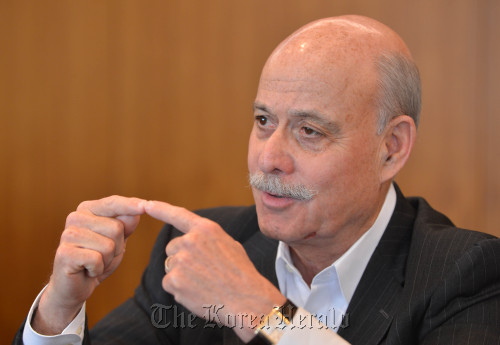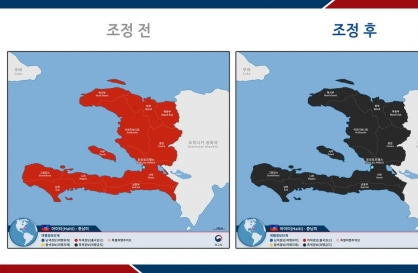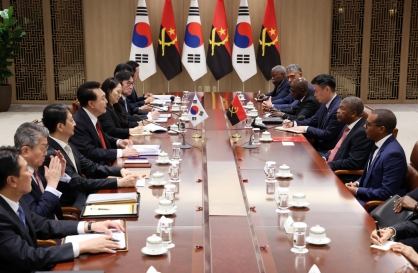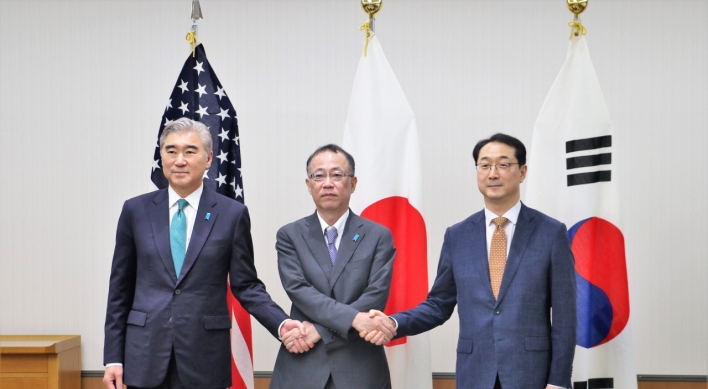Jeremy Rifkin says Korea can play leading role in ‘third industrial revolution’
From renewable energy to world-class IT and shipping companies, Korea seems to “have it all” for the “Third Industrial Revolution,” said a renowned American scholar.
Jeremy Rifkin, economist and best-selling author, said South Korea can play a key role in leading the development of a green economic infrastructure in Asia, and urged the Seoul government to take further actions to make it a reality.
“I do want to applaud this (Seoul) government, I want to be very clear,” Rifkin said during a press meeting in Seoul on Wednesday. He arrived on Saturday to attend the Global Green Growth Summit 2012 in Seoul.
“This government has made a commitment for green growth economy. And I do believe the president and cabinet ministers ― I’ve met some of them ― they are serious. But now you’ve got to do it. Now you’ve got to go from just wanting it and running little projects to actually creating an entire infrastructure across Korea.”
Rifkin introduced the Third Industrial Revolution, an economic vision which focuses on creating an infrastructure by conjoining Internet technology and renewable energies ― such as sunlight, wind, rain, tides and geothermal heat. The vision completely strays from the current oil-powered age and the mass consumer culture after the second industrial revolution. In 2007, the concept was formally endorsed by the European Parliament as its long-term economic vision for the EU.
“The first and second industrial revolutions scaled vertically because they needed centralized communications,” said Rifkin. “So you had to have centralized factories, centralized logistics, and centralized supply chains. It favored national markets and national governments. But the third industrial revolution scales laterally and it wants continental markets. It comes in like Wi-fi. Wi-fi doesn’t respect borders.”
From renewable energy to world-class IT and shipping companies, Korea seems to “have it all” for the “Third Industrial Revolution,” said a renowned American scholar.
Jeremy Rifkin, economist and best-selling author, said South Korea can play a key role in leading the development of a green economic infrastructure in Asia, and urged the Seoul government to take further actions to make it a reality.
“I do want to applaud this (Seoul) government, I want to be very clear,” Rifkin said during a press meeting in Seoul on Wednesday. He arrived on Saturday to attend the Global Green Growth Summit 2012 in Seoul.
“This government has made a commitment for green growth economy. And I do believe the president and cabinet ministers ― I’ve met some of them ― they are serious. But now you’ve got to do it. Now you’ve got to go from just wanting it and running little projects to actually creating an entire infrastructure across Korea.”
Rifkin introduced the Third Industrial Revolution, an economic vision which focuses on creating an infrastructure by conjoining Internet technology and renewable energies ― such as sunlight, wind, rain, tides and geothermal heat. The vision completely strays from the current oil-powered age and the mass consumer culture after the second industrial revolution. In 2007, the concept was formally endorsed by the European Parliament as its long-term economic vision for the EU.
“The first and second industrial revolutions scaled vertically because they needed centralized communications,” said Rifkin. “So you had to have centralized factories, centralized logistics, and centralized supply chains. It favored national markets and national governments. But the third industrial revolution scales laterally and it wants continental markets. It comes in like Wi-fi. Wi-fi doesn’t respect borders.”

The Third Industrial Revolution consists of “five pillars,” which are all vital to the new economic paradigm, according to Rifkin. They are: 1) shifting to renewable energy; 2) using buildings as natural power plants; 3) launching of hydrogen to store intermittent energies; 4) creation of energy sharing power grid using the Internet; and 5) introducing electrically powered, plugged-in cars.
Rifkin said creating an infrastructure by combining the five pillars, rather than launching small, separate projects, is the key for his famous concept.
“Do not make the same mistake that (U.S.) President (Barack) Obama made,” Rifkin said.
“His heart was at the right place. He wanted green economy. I voted for him. He blew it because he spent billions of U.S. dollars on isolated projects. He’d fund a battery factory in one state, and have a solar factory in another state. He didn’t connect them. It’s only when you connect the five pillars, it is the synergies between these pillars that make up the infrastructure.”
Rifkin said Korea has “everything it needs” to go through the Third Industrial Revolution. “Here are Korea’s assets,” he said. “One, it has abundant renewable energy. Much better solar radiance than Germany. It has a huge wind potential because it is a peninsula. You have a huge tidal and ocean energy. Two, you have world-class industries that are completely right for the five pillars. You have the world-class shipping and construction industries here. You have the world-class IT and electronics here. You have world-class transport companies here. Korea first has to show that they can do it in Korea, and then try to export the whole infrastructure system overseas.”
While stressing that his concept aims for continental markets, Rifkin said China is a “question mark” when it comes to creating the green economic infrastructure in Asia.
Rifkin, who has been a vegetarian for the last 35 years, said his decision was to protect animal rights. His wife, Carol Grunewald, has also been a long-time animal rights and environmental activist.
“I grew up in the south side of Chicago in a working class neighborhood near the stockyards,” Rifkin said. “My mother said that must have influenced me. In the summer I could smell the death coming from the stockyards. It was terrible. It took a long period of time. And finally in 1977 I looked at one last hamburger and threw it out and that was it.”
He also stressed that the human kind should move down the food chain, while pointing out that beef consumption is the number two cause of climate change.
“We are not herbivores or carnivores ― we are designed to have lots of foods and vegetables and tiny occasional meat,” he said. “I think we have to extend our empathic regard to our fellow creatures. They have the right to be here on this planet. We should treat them with dignity.”
Rifkin gave a lecture on his green economic vision at Korea Advanced Institute of Science and Technology in Daejeon on Wednesday. On Thursday, he is to participate as one of the key speakers at the Global Green Growth Summit 2012 in Seoul. The Korean-language edition of his latest book, “The Third Industrial Revolution: How Lateral Power Is Transforming Energy, the Economy, and the World” hit local bookstores this week.
By Claire Lee (dyc@heraldcorp.com)


















